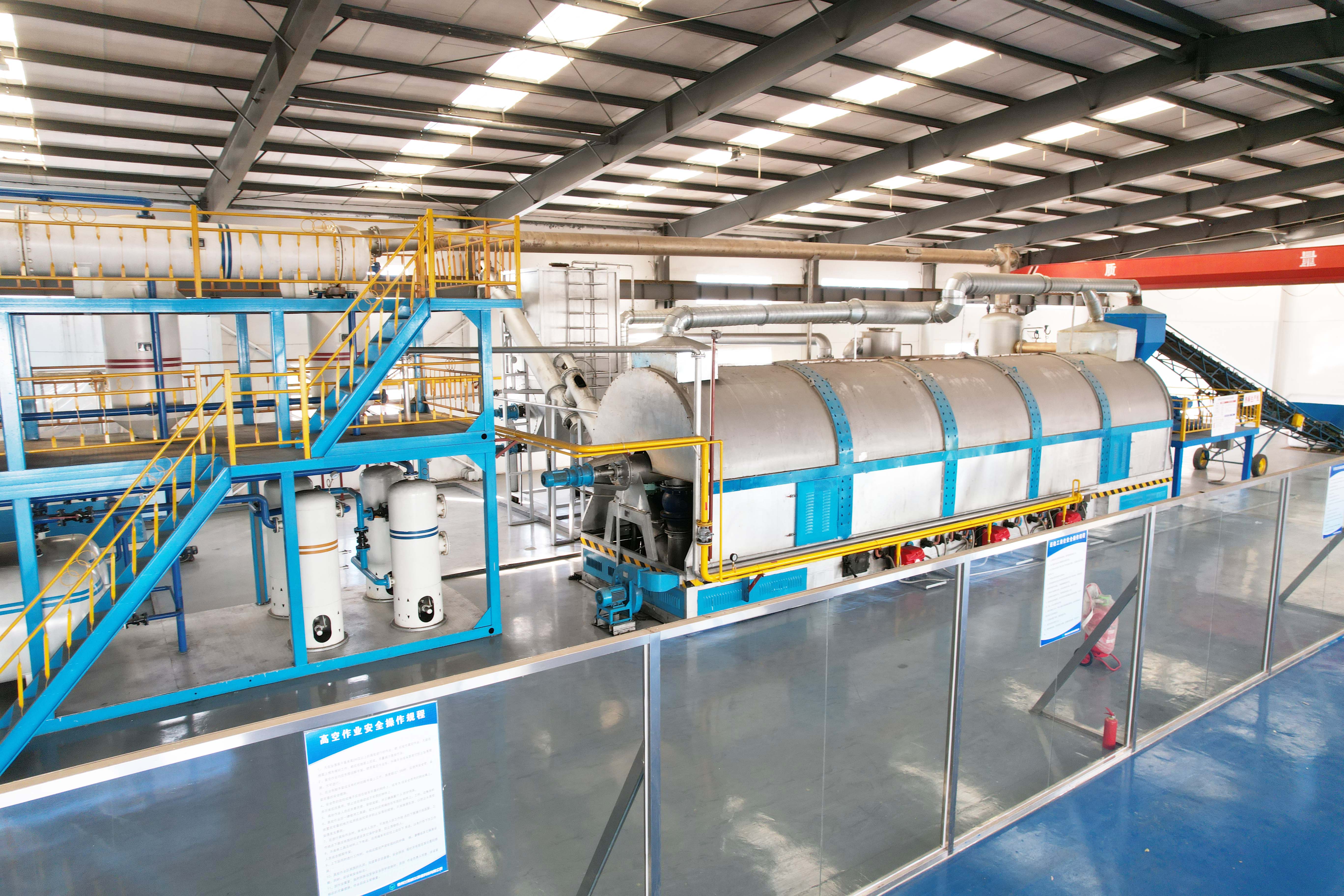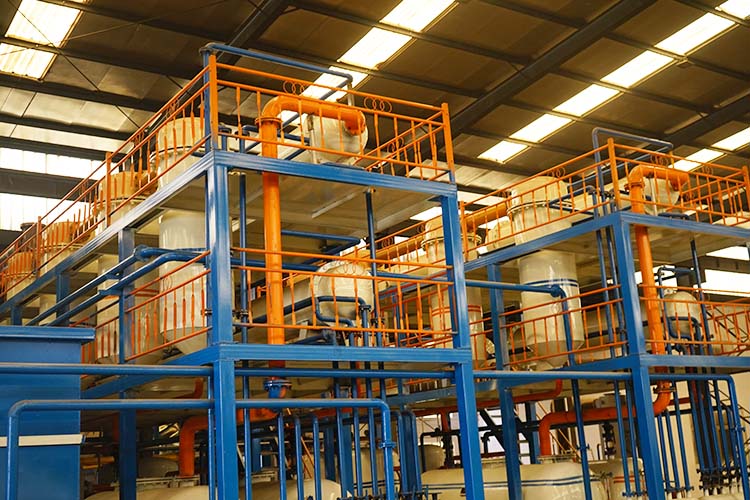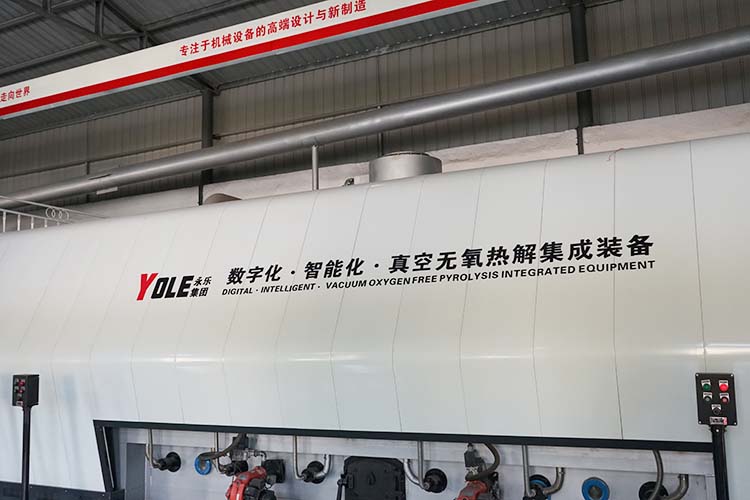In the UK, the automotive industry is well-developed and the road network is dense, generating over 500000 tons of waste tires annually. Among them, tire production in major cities such as London and Birmingham and surrounding industrial areas accounts for over 60%. The local maritime climate, which is rainy all year round, makes the tires stored outdoors prone to water absorption and aging, and the released microplastics seep into the soil and pollute groundwater with rainwater; At the same time, the UK strictly implements the EU's Waste Tire Management Regulations, prohibiting untreated tires from being landfilled. Traditional incineration methods are difficult to meet environmental requirements due to high carbon emissions and the risk of producing dioxins. Faced with the dilemma of difficult compliance and significant resource waste, introducing waste tire refining equipment that can achieve "harmlessness+resource utilization" has become an important choice for UK waste recycling companies and environmental departments.

China Yongle Environmental Protection Equipment has been developing environmental protection equipment for many years. Based on the characteristics of British waste tires, such as a high proportion of thin-walled tires for passenger cars, some tires mixed with metal fragments, and equipment moisture easily caused by rainy environments, the equipment for refining waste tires has been fully customized. The equipment preprocessing stage is equipped with a "dual axis crushing+magnetic separation" module, which can quickly crush the tire into uniform particles and separate metal impurities, avoiding subsequent unit blockages; Considering the rainy climate, the core unit of the equipment adopts a waterproof sealing design, and key components are treated with rust prevention to ensure stable operation in humid environments. The core adopts the "low-temperature pyrolysis fractionation purification" process, which stabilizes the pyrolysis temperature at 400-450 ℃ through an intelligent temperature control system. The tire oil yield can reach over 42%, and the recovered pyrolysis oil meets the British BS 2869 industrial fuel oil standard, which can be directly supplied to local factories as boiler fuel.

The application scenario of this device in the UK covers the whole industry chain. Whether it is a large-scale waste recycling center around London, a regional environmental protection site in Manchester, or a small recycling point in rural Scotland, it can be flexibly deployed according to the treatment scale. In large-scale recycling centers, equipment can work collaboratively with multiple units to achieve a daily tire processing capacity of 10-20 tons. The produced cracked oil can be supplied in batches to surrounding industrial parks, and the separated carbon black can be further processed and used for rubber product production; At medium-sized sites, modular equipment occupies only 100 square meters and can quickly connect with existing recycling networks, reducing tire transportation costs; At rural recycling points, small-scale equipment is easy to operate, and local personnel can easily handle the small amount of waste tires generated by surrounding villages and towns after short-term training.

We can provide customized solutions to address the differences in environmental policies in different regions of the UK, such as Scotland's stricter carbon emission requirements and England's emphasis on resource recovery efficiency. We can assist in the entire process, from adjusting equipment parameters to preparing compliance documents. At the same time, we have an after-sales service center in Birmingham, UK. When equipment malfunctions, our technical team can arrive on site within 24 hours for maintenance. We also provide English training for operators to ensure stable operation of the equipment. In addition, the exhaust gas of the equipment is purified through a triple process of "desulfurization+denitrification+activated carbon adsorption", and the emission standards are much lower than the UK's "Environmental Air Quality Standards". The operating noise is controlled below 60 decibels, which meets the environmental requirements of residential areas. We look forward to deepening cooperation with UK waste recycling companies and environmental organizations, using professional equipment and services to help solve the problem of waste tire disposal in the local area and promote the development of circular economy.
Yongle Environmental Protection is mainly engaged in the research and development, production and sales of complete sets of technical equipment for organic solid waste disposal and comprehensive utilization. Production and manufacturing, domestic waste treatment equipment, tire pyrolysis equipment, medical waste disposal equipment, hazardous waste disposal equipment, and achieve efficient and comprehensive utilization of resources through independently developed low-temperature anaerobic pyrolysis equipment technology solutions.
Tags:Waste tire refining equipment solves the dilemma of tire processing in the UK,waste tire refining equipment,YONGLE GROUP
 Latest news
Latest news


























